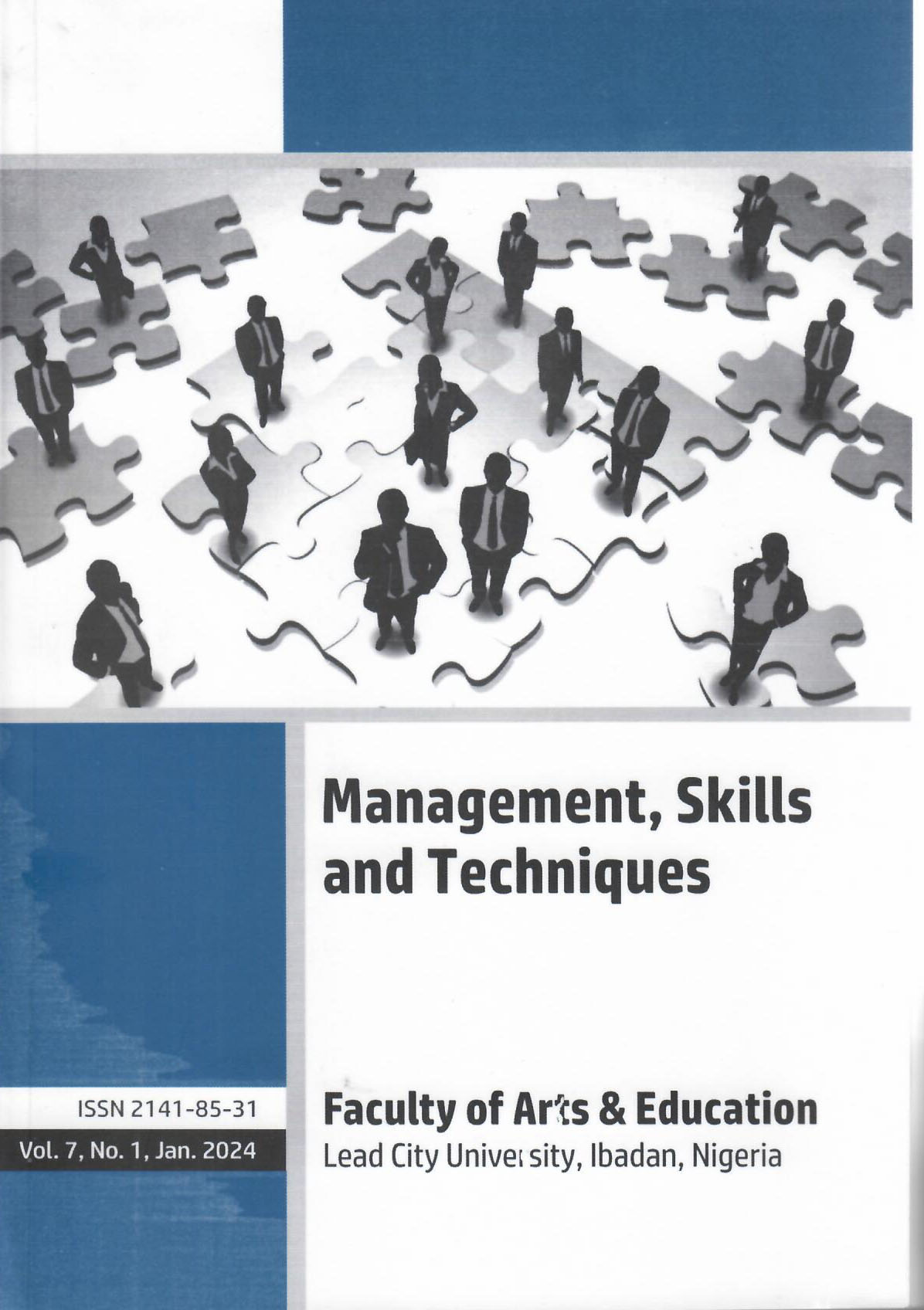Exploring Emotional Intelligence Skills in Restoring Quality Outcomes in Education
Keywords:
Academic Self-concept, Teachers’ Emotional Intelligence, Economics Achievement, Quality OutcomesAbstract
This study therefore investigated the intricate relationship between teachers’
emotional intelligence, academic self-concept of students and achievement in
economics. A sample of 1080 students and 36 economics teachers were drawn
from the population of senior secondary schools in Ibadan metropolis. The
instruments for data collection were Teachers emotional intelligence scale
TEIS for college teachers (r =.611), Academic Self-concept scale ASCS (r
=.824) and Economics achievement test point (r=.772.) Data were analysed
and using the Pearson’s product moments correlation and multiple aggression
analysis. The result shows the joint contributions of teachers’ emotional
intelligence and students’ academic self-concept in the model was found to be
statistically significant (F (2, 1077) = 27.048, p < 0.05) while the independent
contributions of teachers’ emotional intelligence (? = 0.075, t (1077) = 2.531, p
= 0.012) and students’ academic self-concept (? = -.200, t (1077) = -6.702, p =
.000) were also found to be statistically significant at 0.05 alpha levels. Based
on the findings of this study, it is safe to conclude that teachers’ emotional
intelligence is an integral part of the teaching-learning process that must be
incorporated, developed and established meaningfully.

